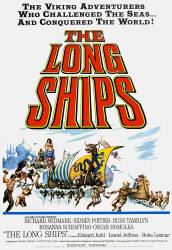Factual error: At the end, Rolfe suggests to King Harald that they seek "the three crowns of the Saxon kings." But this lost treasure legend is a modern invention. In 1925 M R James wrote "A Warning To The Curious", which says that the Anglo-Saxon kings of East Anglia buried three crowns near the English coast. Somebody who finds one of these meets a mysterious, sinister death. The legend of the three crowns of the Saxon kings has since appeared in many books about English folklore. But there is no record of this story before 1925 and it is now believed that M R James invented it. Thus the story of the three crowns would not have been known to the Vikings.
Suggested correction: First of all, you state "it is now believed that M R James invented it." So it is not known for certain if he did or not? And if it is doubted now, what about 1964? Something doesn't become a mistake if future discoveries contradict what was known at the time. And finally, whether it was a real legend or not is irrelevant. It is a legend in the world of the movie, just like the legend of the golden bell. If anything this should be listed as trivia.
Well observed, Sir! I concede that you make very valid points. In hindsight, I should not have submitted this as a factual error. I should have worded it as a question. I should have asked if Rolfe's closing lines about "the three crowns of the Saxon kings" alluded, directly or indirectly, to the M R James ghost story "A Warning To The Curious." Maybe it does, maybe it doesn't. But I will have to agree that, if the golden bell is a real object in the cinematic world of "The Long Ships", then the legend of the three crowns of the Saxon kings can be an equally real legend in the cinematic world of this film. I am fully aware that films are not real life and that the internal logic of a film need not follow the logic of real life.





